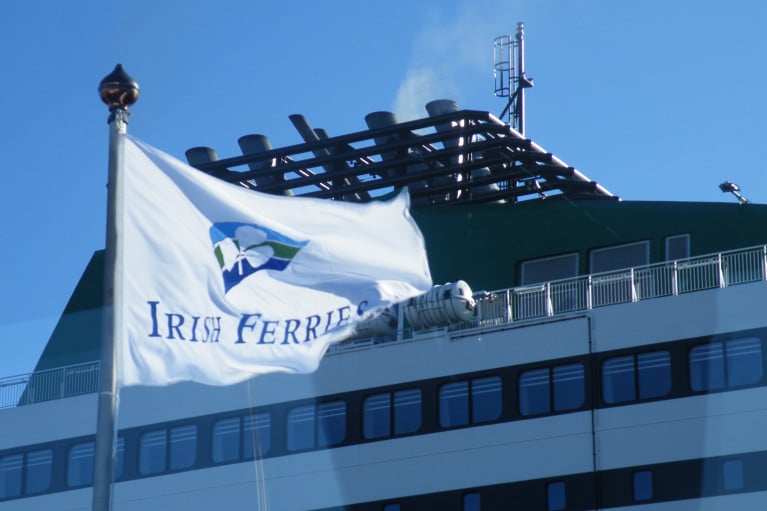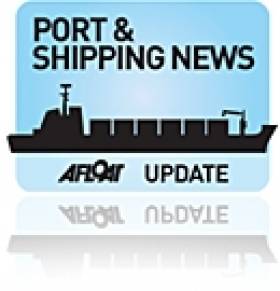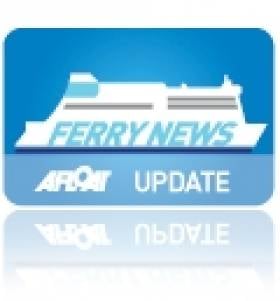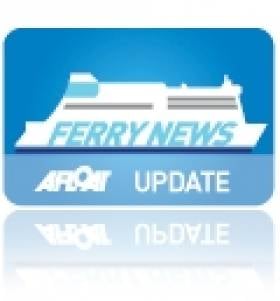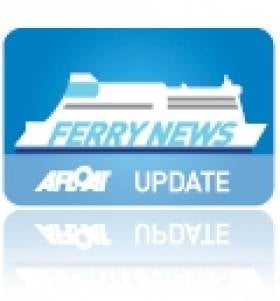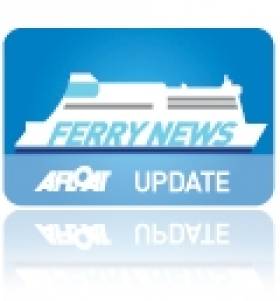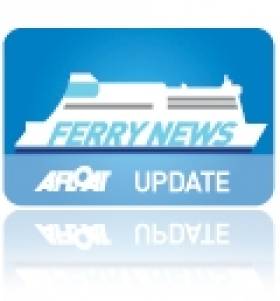Displaying items by tag: Irish Continental Group
Ferry Operator Among Irish and UK stocks Poised to Climb after Brexit Trade Deal Signed
Stock markets in Ireland and the UK are expected to jump this morning on the first day of trading since the Christmas Eve post-Brexit trade deal was secured.
They will also get a boost after US President Donald Trump finally signed off on a $2.3tn (€1.88tn) pandemic aid and spending package.
Germany’s DAX hit a record high in early trading yesterday, spurred by optimism over the trade deal, while other bourses including those in Spain, Italy, France all showed gains.
A number of Irish-listed companies including Irish Ferries owner Irish Continental Group (see shipping container division story), CRH, Smurfit Kappa, DCC, UDG Healthcare and Kingspan will be among those likely to get a lift this morning.
Dublin and London markets were among the only ones closed in Europe yesterday.
For more regards impact of Brexit and US markets, Independent.ie reports here.
#IrishContinental - The Irish Continental Group (ICG) has appointed Mr. David Ledwidge to the position of Chief Financial Officer.
Ledwidge is a Member of the Institute of Chartered Accountants Ireland and a Bachelor of Science graduate from Dublin Institute of Technology. He joined ICG from accountants Deloitte in 2006.
Prior to this newest appointment, he has held various financial positions within ICG, firstly as Group Risk Accountant followed by his appointment as Irish Ferries Financial Controller. In 2013, he was appointed Irish Ferries Finance Director.
Last month, Andrew Sheen was appointed the new Managing Director of Irish Ferries in which he will assume this role in April.
Brittany Ferries Roscoff Route to Re-open
The German built 41,700grt vessel stays at the port for an 8 -hour turn-around before making the seasons inaugural outbound sailing to France at 16.00hrs.
Pont-Aven can arguably claim to be the most luxurious 'cruiseferry' operating to Ireland as the vessel has a small number of luxury cabins incorporating balconies and uniquely to feature a swimming pool.
The swimming pool and leisure area can be covered over by a retractable roof. The option of the 'open-air' swimming pool may prove more popular with her 2,400 passengers as the cruiseferry also operates on a triangular route roster between Roscoff-Plymouth and Plymouth-Santander
Pont-Aven also operates a second Spanish route, Santander-Portsmouth in tandem with Cap Finistère. The 32,728grt cruiseferry last week opened a new route for Brittany Ferries also from Portsmouth to Bilbao, for details click here.
The Bibao route had closed in September when P&O Ferries withdrew from the service which since 1993 has been run by Pride of Bilbao. The 37,583grt was on charter from the Irish Continental Group (ICG) the parent company of Irish Ferries until its sale late last year to a Baltic Sea ferry operator between Helsinki-(Tallinn)-St.Petersburg, for more information click here.
Brittany Ferries Re-Open Bilbao Route
The Cap Finistere has a 790 passenger / 500 vehicle capacity and the vessel will operate two round trips weekly with each crossing taking 24 hours. Interestingly an additional en-route call to Roscoff is scheduled on Sunday sailings bound for Bilbao which will take 33-hours. This is to facilitate a crew change, as the Cap Finistere does not operate on any of the company routes from France.
In 2009 the P&O service carried 180,000 passengers and 193,000 in 2008 but closed due to "unsustainable losses". There were 800 redundancies but some 150 staff jobs were secured through transfer. Click here for a previous posting. The company were in direct competition with Brittany Ferries existing two routes between Plymouth and Poole to Santander.
The Bilbao route brings the Brittany Ferries operations to five sailings weekly between the UK to Spain, two from Portsmouth to Santander and a single round-trip to Plymouth.
The Pride of Bilbao was sold late last year by ICG to the Baltic Sea based St. Peter Line at a profit of €9.4m. The vessel underwent refurbishment and was renamed Princess Anastasia and next month starts a new St. Petersburg-Stockholm service, with Russian bound sailings calling en route to
the Estonian capital of Tallinn. Click here for more details.
Pride of Bilbao's return to the Baltic is nearly full-circle as the 2,553 passenger / 600 vehicles vessel, built in 1986 as Olympia for Viking Line's also operated out of Stockholm to Helsinki, and at the time was one of the largest overnight passenger capacity ferries in the world.
Irish Ferries Signs 10-Year Contract On Welsh Route
The St. Georges channel crossing carries over 300,000 passengers and 80,000 freight annually and is served by the 34,031grt Isle of Inishmore. The ro-pax can handle 2,200 passengers, 802 cars / 152 freight trailers and is scheduled to two daily round trips, on a route that take nearly five hours.
The 1997 Dutch built vessel was first launched onto the central corridor route between Dublin-Holyhead but was transferred to the southern service after the introduction of Ulysses in 2001.
Rosslare-Pembroke Dock sailings only began in 1980, firstly operated by the B+I Line which competed with rival operators Sealink / British Rail (now Stena Line) on services running out of Fishguard.
This route was well established having started operations in 1906 and in an era when the railway companies (in this case the Great Western Railway) developed and owned the ports plus the operation of shipping services on the Irish Sea.
Irish Continental Group Record 61% Rise in Profit
The Irish Continental Group (ICG) which is the parent company of Irish Ferries, has warned of 'uncertainty' in 2011 due to higher fuel costs and the effects of the austerity measures in both the Irish and UK economies.
ICG secured a 61% increase in pretax profits in 2010 following an increase in passenger numbers and the sale of their MV Pride of Bilbao to St. Peter Line (click here) after a long-term charter to P&O Ferries. The 37,583 gross tonnes cruiseferry is to open a new second route for the Baltic Sea operator between St. Petersburg and Stockholm, starting next month.
To read more about ICG's end of year results, click the report in today's Irish Times.
Enter European Endeavour
The European Endeavour will enable P&O to offer up to three Ro-Pax style sailings a day on the 7.5 hour route instead of the previous two-plus one Ro-Ro (freight-only operated) service. The 180m vessel is no newcomer on the route as over the last two years the ship has deputised to cover the annual overhauls of the routes' vessels.
The Spanish built vessel directly replaced the Ro-Ro freight ferry Norcape, which made her final sailing on the central corridor route, with the 1979 built vessel berthing at Liverpool's Huskisson Dock in the early hours of Sunday morning. Norcape could take 125 drop trailers but only had 12-passengers cabins (for freight accompanied truck-drivers).
Only last year the Japanese built vessel returned to the Irish Sea route as the Norcape but originally started a career with the B+I Line as their Tipperary on the Dublin –Fleetwood route. The UK port was switched to Liverpool in 1988, in the following year she was sold to North Sea Ferries.
The standing down of the Norcape represents the last vessel of the former B+I Line fleet to have any association with the Irish Sea. In 1991 the Irish state owned shipping company was sold to Irish Continental Group (ICG) which is a parent company of Irish Ferries. At that stage Irish Ferries operated only on the continental routes to France.
To read more about Norcape's final sailing on the Irish Sea route, click here.



























